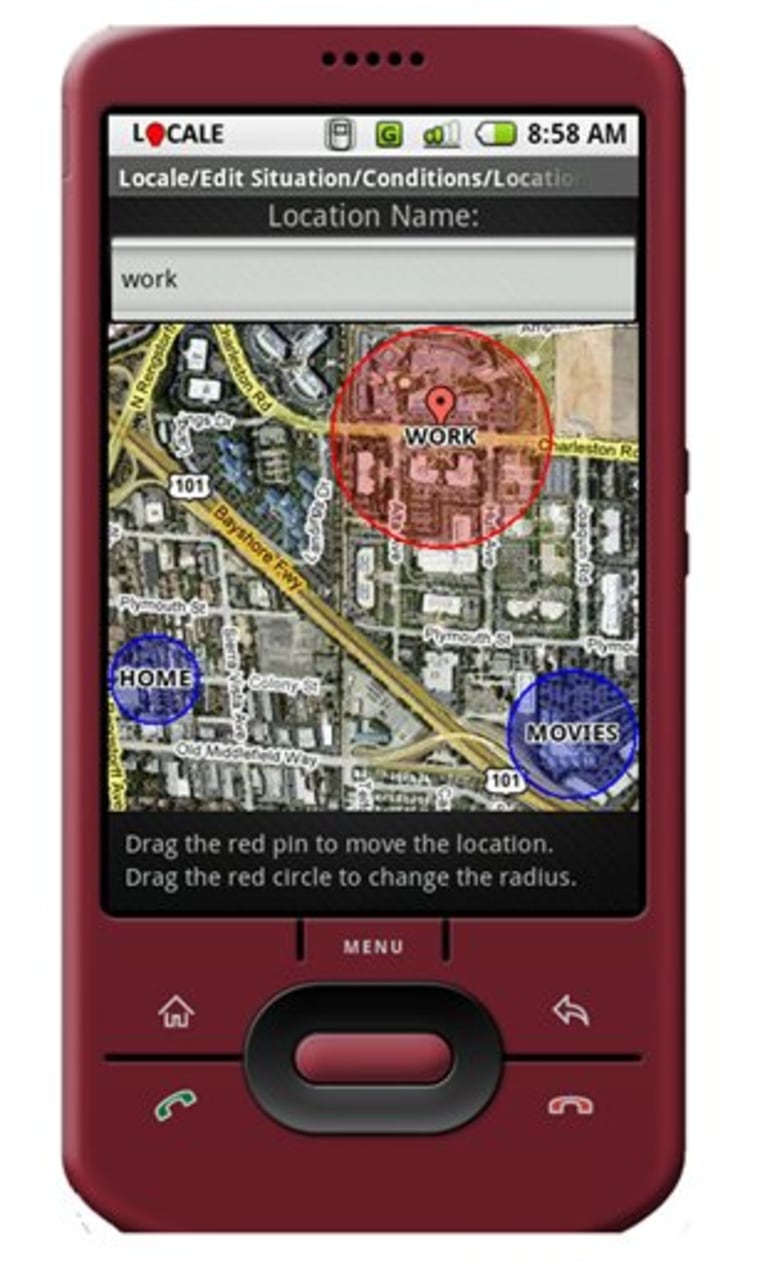What do you want your cell phone to be able to do?
Massachusetts Industry of Technology professor Hal Abelson put that question to about 20 computer science students this semester when he gave them one assignment: Design a software program for cell phones that use Google's upcoming Android mobile operating system.
In the process, they revealed the power of an open system like Android to shake up the mobile phone industry, where wireless companies are being pressured to loosen the control they have maintained over what devices do. If the brainstorms of these MIT students are an indication, phones will soon challenge the Internet as a source of innovation.
For these students at least, cell phones should be all about location, location, location. Most of the projects produced by the seven teams of students involved programs that let phones track people's physical place — or that of their friends — to help them do things and meet up.
One project named GeoLife gives users a way to set to-do lists and get reminders on their phones. Walk by the market, and the device might buzz with a message that you're supposed to pick up milk. Another effort, named Flare, was designed to help small businesses like pizza shops cheaply track their drivers.
Then there was Locale, which lets users configure their phones to automatically adjust their settings when the devices detect themselves in certain zones. So you might set your phone to automatically go into vibrate mode in the office and silent mode at the movie theater, and ring everywhere else.
The class had about three months to build software for an Android phone. The idea had to have a solid business case, a probable way of making money.
Some of that required conjecture, because there are no Android phones yet. A group called the Open Handset Alliance, with more than 30 wireless companies, has committed to using Android, but phones aren't expected to hit the market until the second half of the year. The students developed their work on a PC program that simulates a phone's operation.
Even so, the possibilities of the new wireless age seemed clear to the class. For example, Clare Bayley, an MIT sophomore on the Locale team, said her group's software eventually should adjust its operation based on factors beyond location. Perhaps calls from certain people in the contact list could go through in some locations, but not in others. Or the phone could tweak its screen brightness depending on remaining battery life.
Such customization would have seemed like a stretch until recently, when the idea began to take hold that cell phones should be as open to new programs as PCs are to Web sites. In addition to Android — which is Google's attempt to extend its online advertising dominance to a new venue — an industry group called the LiMo Foundation is backing open-source phones. Apple Inc. has taken steps to let third-party software developers create new applications for its iPhones.
"This class is a glimpse of the future, and what's nice, the not-so-distant future," Abelson said Friday at a gathering where the students presented their final projects.
In the audience were some of the professional mentors the students had during the semester, including Rich Miner, who's overseeing Android for Google from an office across the street from MIT. Miner said afterward that the students' work — which they are free to continue pursuing — was generally as good as anything other developers are trying.
In fact, the Locale group won $25,000 and advanced to the finals of a $10 million Android developers challenge Google is running.
The other student projects included Re:Public, a social-networking program that helps people make new friends in their area. Loco offers a way to find events around town and invite other people. Snap guides users to interesting places in their vicinity.
And there was KEI, pronounced "key," because that's what it is: software that enables a cell phone to unlock your car. It was the lone entrant not to tap the location craze.
But no matter: Abelson said they all would get an "A."
